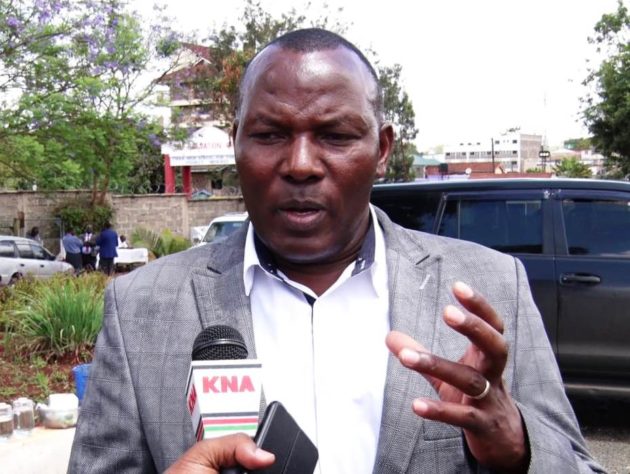Association faults new universities funding plan
By James Wakahiu, May 12, 2023Education stakeholders have added their voice to the recent universities and TVETs funding model announced by the State recently.
The National Association of Private Universities in Kenya Secretary General Vincent Gaitho has poked holes on the mode of funding saying it was discriminative to students in private universities. He said the new funding model will bar students in private universities from accessing government scholarships, thus locking them out from seeking higher education.
“The President said that under the new model, every child will have equal opportunity. Equal opportunity should not be discriminative but open to all students. Equal opportunity means all student should be given an opportunity to choose where they want to seek their higher education,” said Gaitho during a media interview on a local television.
“People should be given an opportunity to choose where they want to seek their higher education,” said Gaitho, who is also the Pro-Chancellor at Mt Kenya University.
He warned there was a risk of locking people to particular line of thinking and area of seeking higher education. “Going forward, private universities may be seen as pariahs, as unwanted, that they shall not be considered in placing students. We have no problem with that. Let students be given the opportunity to seek education in the institutions they feel will give them the opportunity to unlock themselves.”
Dr Mark Matunga, an Educationist said the funding needs to be student-based and student-centered, which will also give an opportunity even for private universities to create scholarships.
“Our money should fund an individual, not a university. The challenge is for universities like Strathmore to look for scholarships for their students and former students,” said Matunga.
The two spoke during a media interview on KBC Tv on Wednesday morning. Under the new model announced last week by President William Ruto, the university and TVETs funding model aims at benefiting students from extremely poor backgrounds.
The government will cater for education costs of vulnerable, less vulnerable and extremely needy students who comprise 29 percent of those joining universities and TVETs this year.
“For the first time, students whose families are at the bottom of the pyramid shall enjoy equal opportunity in accessing university and TVET education. Their households shall not make any contribution towards the education of their children,” Ruto said.
The President also announced an increase in university education funding to Sh84.6 billion, up from Sh54 billion in the 2023/24 financial year, a 56 per cent rise from current budget. “Funding to students shall combine scholarships, loans and household contributions on graduated scale, scientifically determined by means testing instrument,” President William Ruto said in a televised address from State House, Nairobi.
Ruto said going forward, the State would not fund students attending private universities. There are about 30 private universities in Kenya which work to enhance the provision of quality education in the country.
The aim is to support public institutions, whose pending bills have ballooned to Sh60.2 billion due to unremitted statutory deductions, Sacco dues, pension, bank loans and unpaid contractors.
Dwindling State capitation while operating costs rose over the years have combined with falling student numbers to worsen the cash crunch. However, financial mismanagement and corruption also play a role in crippling public universities.
The new framework will be applicable for the new cohort of students joining universities and Tvets this year and does not increase tuition fees.
According to Dr Gaitho, before 2016, private universities never had any government-sponsored students. “Why did Government see it wise to make this move? These universities have invested in infrastructure, systems and people and it is even cheaper for the State to sponsor students in private colleges,” he added.
Previously, the private institutions used to market themselves to attract students from Kenya and abroad. From 2016, the Kenya Universities and Colleges Central Placement Service (KUCCPS) started placing students in private universities due to lack of capacity in public institutions. “Kuccps would discuss with the private colleges, who would then declare the vacancies they have. The State would then pay for students in the private colleges,” said Dr Gaitho.
